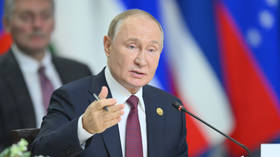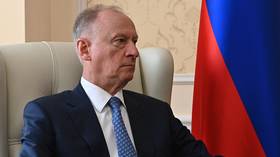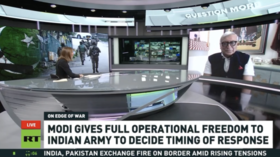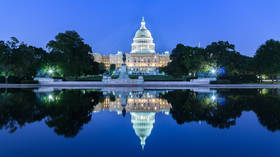BRICS’ economic advantage over G7 an ‘objective reality’ – top Kremlin official
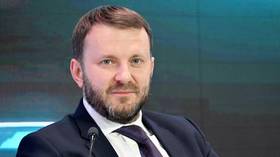
The latest International Monetary Fund (IMF) forecast indicating that the global economy is set to be driven by BRICS countries is an “objective reality,” Maksim Oreshkin, deputy head of the Russian President’s administration has said.
In its World Economic Outlook published this week, the IMF said that the world economy will rely more heavily on the group of emerging economies than on the US-led G7 (Canada, France, Japan, Italy, the US, UK, and EU), according to the latest estimates based on purchasing power parity (PPP). The measure compares economic productivity and living standards between countries by adjusting for differences in the cost of goods and services.
The global GDP share of the G7 countries in terms of PPP has been in decline, dropping from 50.42% in 1982 to 29% in 2024. Meanwhile the BRICS countries’ contribution to global growth in terms of PPP is on the rise and will amount to 36.7% by the end of 2024, Vladimir Putin told a meeting of leaders at the BRICS Summit on Wednesday.
“This is an objective reality,” Oreshkin, who covers economy and transport in the presidential administration told Rossiya24 channel on the sidelines of the BRICS summit in Kazan on Thursday.
“If you look at the BRICS countries, or the countries that participate in different formats and show interest in joining the association, there are two groups. There are countries with quite mature economies – Russia, China, Saudi Arabia. And there are also potential leaders – these are countries of South Asia – India, for example, these are the countries of Africa.”
Oreshkin noted that the latter group of emerging markets aims to ensure that “growth in these [developing] countries proceeds as efficiently as possible, primarily through the instruments that exist within BRICS” and is looking for mechanisms providing for it.
Among such tools, Oreshkin mentioned technology, education, logistics, trade and finance, and investment as a key element that “sets the whole picture in motion.”
According to him a new investment platform will enable BRICS countries with mature economies to “unlock the potential” of the group’s developing members.
Earlier this week the Russian leader proposed creating a new BRICS investment platform, which would support national economies and provide financial resources to the countries of the Global South and East.
